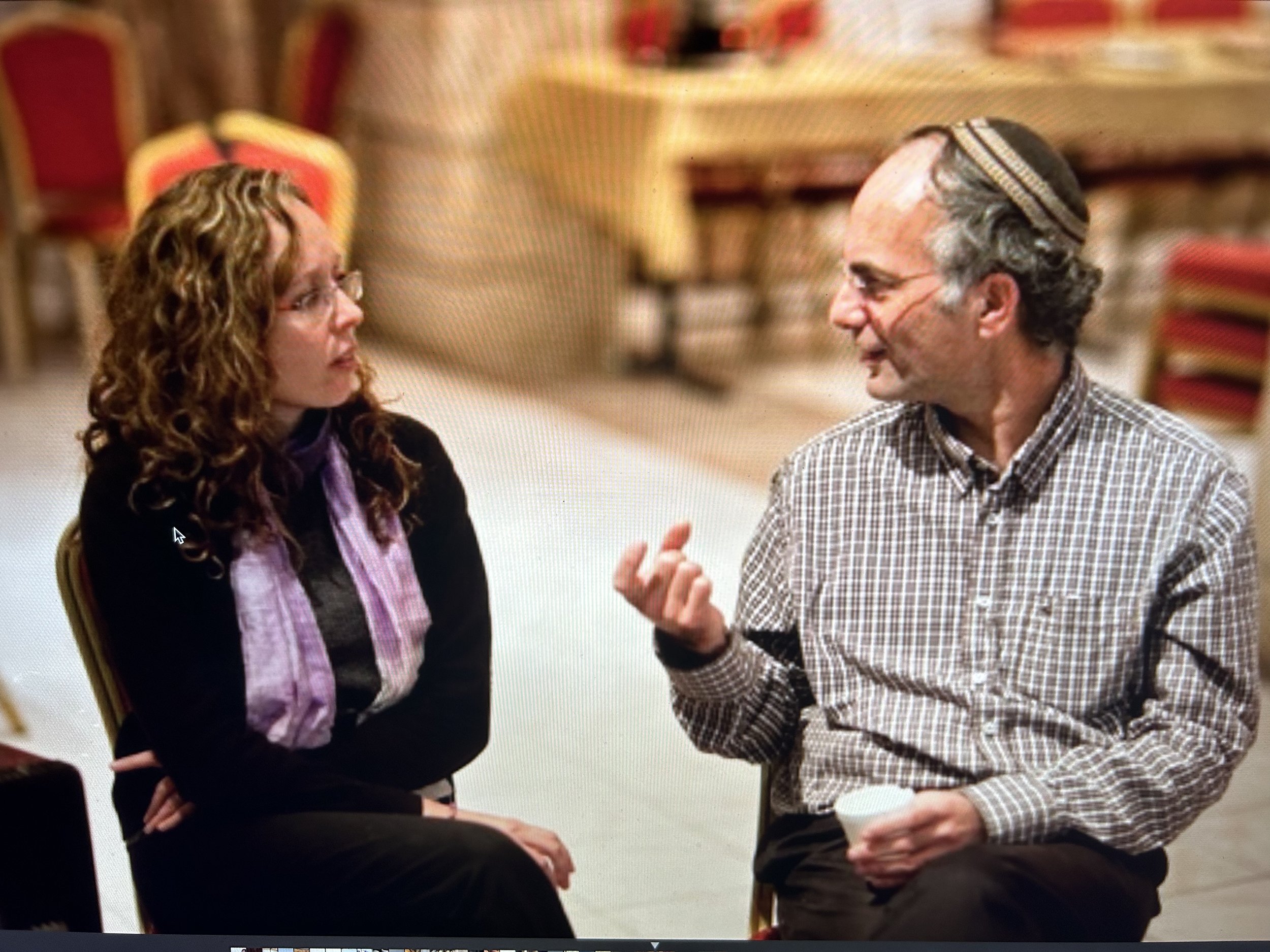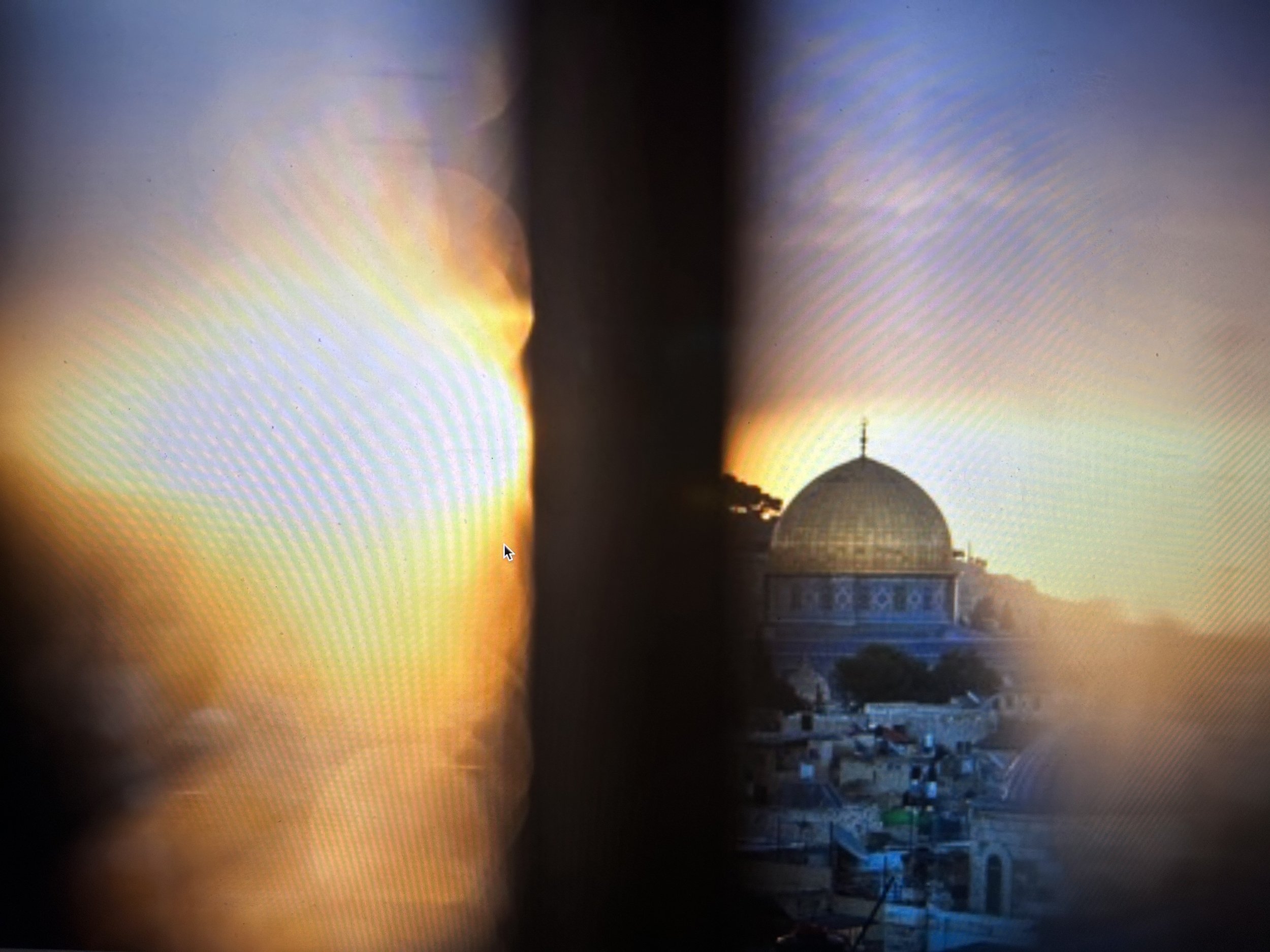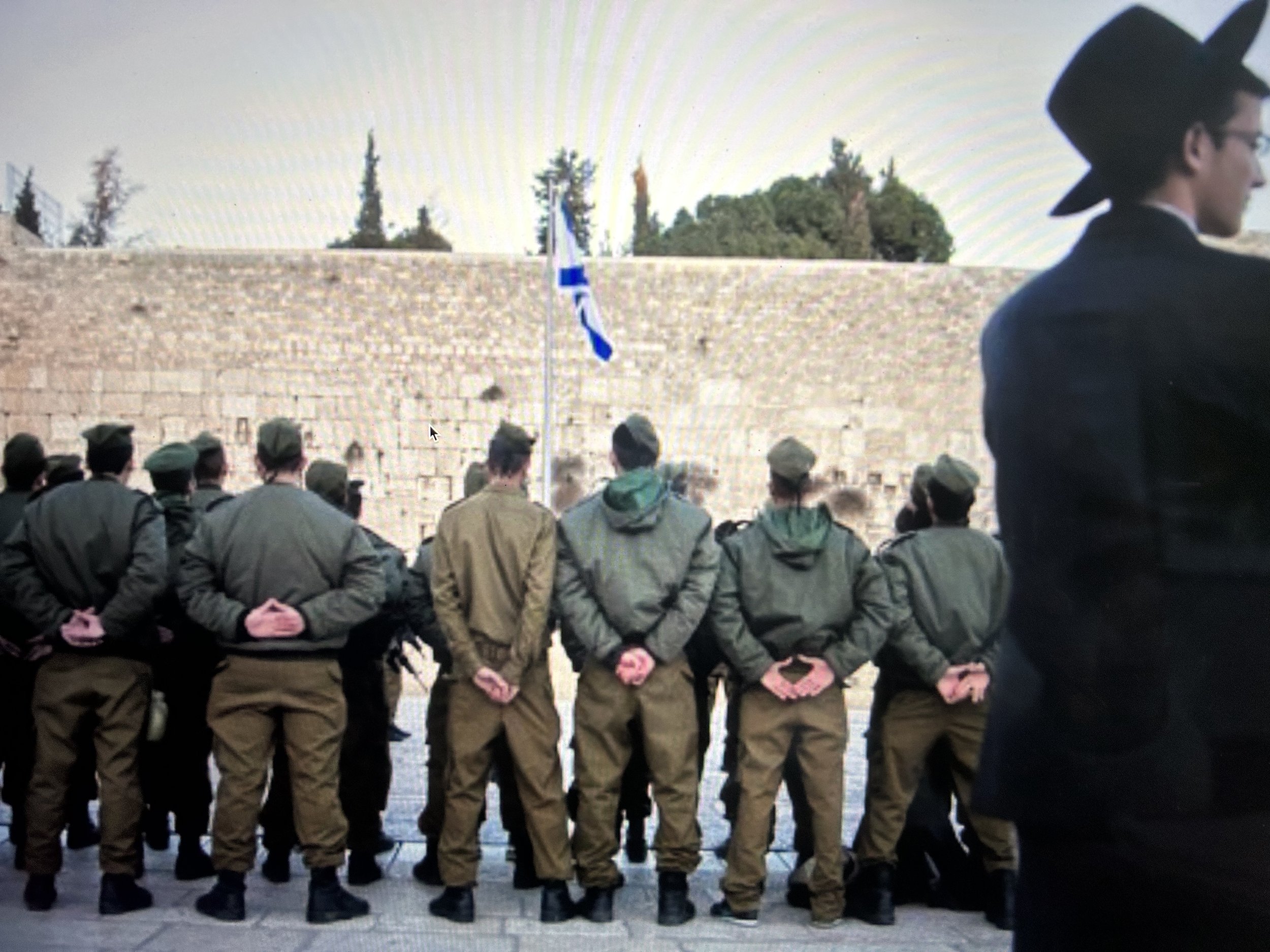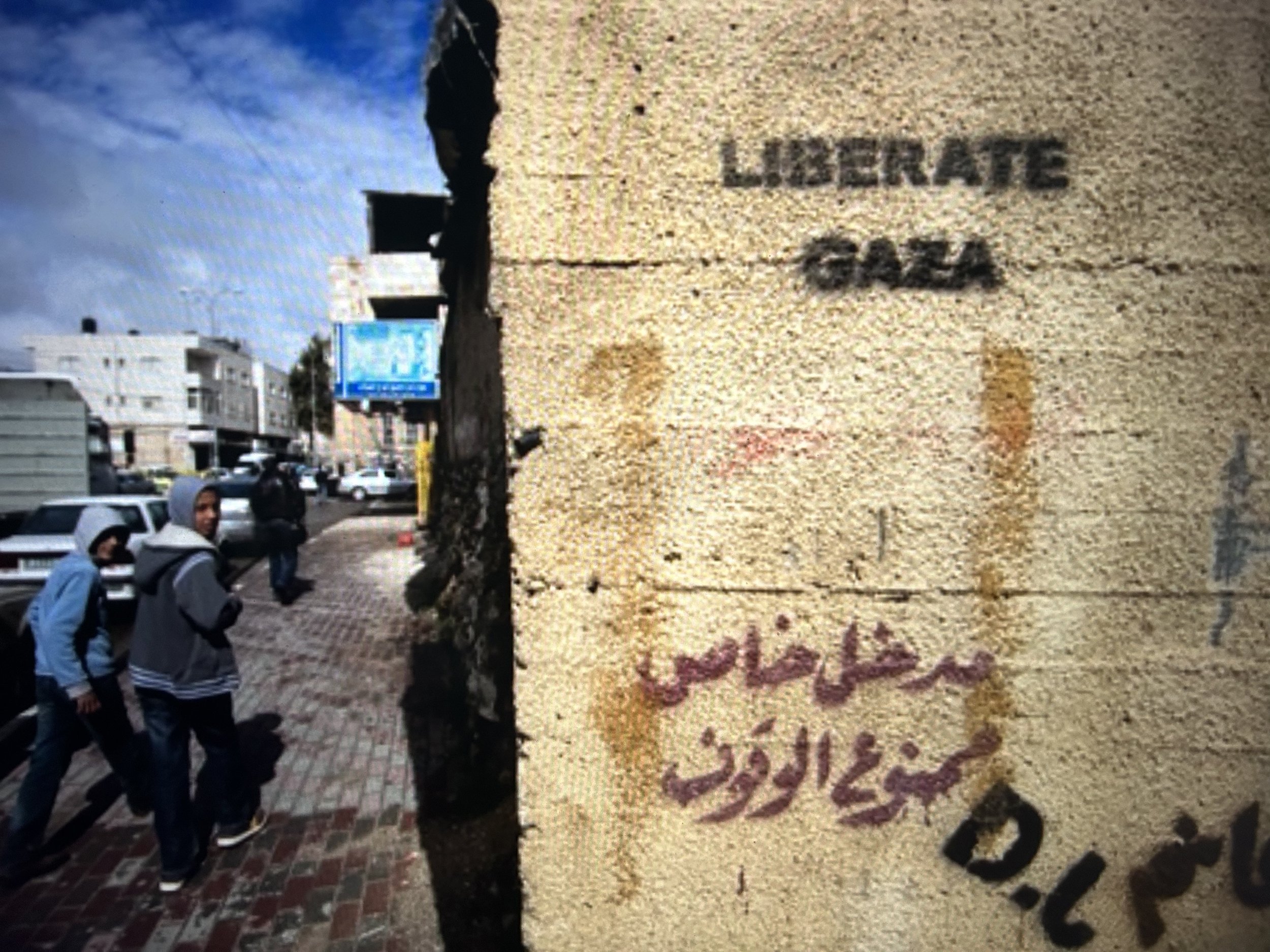Where is your voice?
Janessa Gans Wilder is the founder of Euphrates Institute and currently serves on the board of Heart of a Nation, an organization empowering young Israelis and Palestinians. In response to the escalation of war in Israel and Gaza, Janessa is sharing her voice, her reflections and response.
The above images were captured in 2012 on one of Janessa’s many visits to the Holy Lands. Photo Credit: Nathaniel Wilder
I was on Facetime the other night with Kareem, an exchange student from Gaza who’d lived with our family, an 18-year-old trumpet player and aspiring medical student. He huddled in the dark next to his mother as bombs exploded in the background. I watched him pause and listen for their impact. It reminded me of how I used to do the same thing in Iraq, grateful each time that if I heard the explosion, it meant it hadn’t landed on me. A few minutes later, Kareem’s mother looked at her phone and reported that a mosque right next to the school near them had just been hit. She shook her head. “The children. What will this do to the children?”
On the other side, among my Israeli and Jewish friends, there is not one of them who has not been affected by the attack by Hamas, many of them who know innocent people who were killed or wounded, all of them dealing with the trigger of trauma that has defined Jewish history and set the seal on the scale of atrocities depraved humanity is capable of, as their people experienced in the Holocaust.
This is war. A brutal, horrific place of agony and pain. We find ourselves here yet again. (Did we ever leave it?) Although not to the extent of this current battle in Gaza and Israel, war is not unknown to me. It was out of the despair of the Iraq war and the pain of violence and dehumanization that I found myself desperate to connect to the ‘Other’ and started a global organization dedicated to peace.
Yesterday, another of my Gazan exchange students sent me a personal message, one that was raw and honest and stung like crazy. Among other things, he pleaded,
“Where is your voice, Janessa? Israel is committing a massacre in Gaza and I can’t help but to ask, where is your voice? Your silence is as loud as the screams of the innocent people dying in Gaza.”
My voice…what can I say when I am overwhelmed with grief? All I want to say is that I’m sorry, over and over, to all those in the Holy Land who are suffering, and hold them in my heart.
I could just leave it there.
If I were to say more, it would be that my feed doesn’t need more pictures of dead babies. The war that’s playing out in Gaza is playing out on social media, in the news, and from the litany of governments’ statements condemning one side or the other, justifying one side or the other. These prevailing voices speak from the mindset of “us” and “them”, from the belief that nations and religions and tribes and parties are separate from each other, and that one group is good and another, evil.
The reality of nature and humanity and the earth points to a different notion, one of our interconnectedness and interdependence, from the air we breathe to the waters that circulate. A recent example bears this out. A few days ago, I attended a local antisemitism gathering in my city, and invited Aziz (yet another Gazan exchange student) who’s staying with my parents, to join me. He’d never met a Jew before in his life and has only just arrived in the U.S. from Gaza three weeks ago, and yet he said he was curious and wanted to attend. The student listened respectfully to the attendees’ stories of heartbreak and sadness. The Jewish participants, in turn, listened to the Gazan student’s reflections on the conflict and his fears for his homeland. One Jewish man leaned towards Aziz and looked into his eyes. After saying how intensely he despises Hamas, he offered, “But you are my cousin! We are family, you and I, the Jews and Arabs, both Semitic peoples!” They took a picture together and talked earnestly through the afternoon. I was moved by this small manifestation of connection and kinship in the midst of a violent war between these two groups. Several people told us afterwards that having the young Gazan there was the highlight of the event; one described it as “the heart-cracking moment.”
If we were to raise our voices, why shouldn’t it be in the same vein as these participants, with the courage and open-mindedness of this young student and the warm welcome of these Jewish community members? Why couldn’t we find our voice by putting ourselves in the Other’s shoes and acknowledging their suffering and humanity? Why shouldn’t we be strong advocates for both Israelis and Palestinians to have long-term justice, peace, and security?
If I thought expressing my outrage over what’s happening in Gaza would help, I would do it. In 2006, after I experienced the occupation directly while living in the West Bank for several months, I strived to educate others through every avenue I could. I taught classes on the Palestinian situation; I published articles in newspapers; I blogged about it; I spoke about it. It felt like all it did was make people angry and justify their own positions. I was even branded a “lover of Hamas”, the farthest thing from the truth.
It is misguided to ignore the conditions of 75 years of oppression that led to the terrorist attack last week. The laws of physics tell us that when you put enough pressure on something, it will explode. The people of Gaza have been living in a prison and deprived of all the basic freedoms that human beings have the right to have. It should not be a surprise when the contents explode. In the same vein, it’s no shock how Israel is reacting to the attack, understandably, out of fear, anger and grief.
It’s understandable, but not effective. I have to wonder what the next 75 years will look like as we keep digging ourselves a deeper and deeper hole with no end in sight. When we attempt to destroy movements by force, we’ve seen that they transmute and worsen. Al Qa’ida became ISIS. What will the next iteration of Hamas look like? I shudder to think. True peace will only come about by a deep change in mindset and a recognition of the other’s humanity and equality. That’s what I would wish to give voice to.
Through tears, I wrote a poem at 4 a.m. when I couldn’t sleep.
Everybody’s hurting.
“But you started it.”
We could debate that answer for a thousand years.
Everybody’s hurting.
“But we’re hurting more than you.”
Why compete over pain?
Everybody’s hurting.
“But our lives are worth more than yours.”
A human being is a human being.
Everybody’s hurting.
“But you want to destroy me.”
Someday we’ll see that destroying you, destroys me.
Everybody’s hurting.
We are wired for connection. Even our hurt connects us. Let our voices be a call to honor and restore connection.




